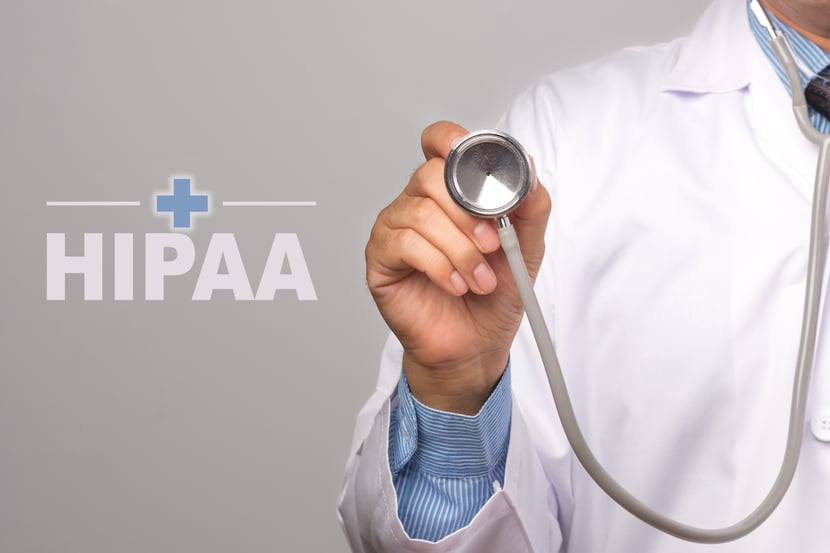
Healthcare practices can face numerous communication challenges, especially when using traditional phone and email systems to communicate with patients. For starters, patients may find it hard to reach the right person by phone. This obstacle to communication can cause your patients frustration and reduce patient satisfaction ratings. Conversely, using outdated communications technology can waste the time of busy healthcare professionals.
Patient follow-ups are also harder to keep track of when you’re using old-fashioned phone lines. If staff are unable to reach a patient via an initial phone call, further follow-ups may be overlooked, resulting in a lower quality of care and sometimes causing unnecessary, expensive readmissions.
Perhaps most importantly, conventional phone lines are difficult to secure, meaning that private health information is potentially at risk of data theft and compromising patient confidentiality. Rules require that communications channels that transmit protected health information (PHI) must be HIPAA compliant at all times, including your video conference software, phone calls, voicemail, email, and all other communication technologies. For healthcare practices looking to strengthen security while improving the patient experience and staff productivity, a HIPAA-compliant VoIP service is a safe, efficient, and cost-effective solution strongly worth considering.
Here are five ways a HIPAA-compliant VoIP could help your healthcare practice.
1. VoIP service can help keep your healthcare practice compliant.
As a healthcare provider, you have a responsibility to maintain compliance with HIPAA and other regulations. Your communications channels must be compliant and keep your patients' confidential health information secure. However, too many healthcare practices rely on outdated or non-compliant technologies, such as non-encrypted phone lines and commercial video conference solutions, such as Skype or Zoom.
By contrast, HIPAA-compliant VoIP service providers have typically undergone extensive audits and implemented data security controls to satisfy the requirements expected of business associates as specified by the Department of Health and Human Services. For their VoIP services to meet HIPAA compliance requirements, they must offer features including data encryption, access controls, and ID control for all landline and cell phones included in the system. By choosing a HIPAA-compliant VoIP, your communications with patients will become more secure, and you can feel confident that your practice has strengthened its compliance.
2. HIPAA-compliant VoIP service increases patient satisfaction and help you offer better patient care.
When you upgrade to HIPAA-compliant VoIP, you better ensure that confidential patient information is secure, which should give your patients confidence that their privacy will be maintained. In addition, a VoIP services makes it far easier for patients to reach you. With features like live web chat, patients can contact you quickly, making it easier for them to reschedule appointments, get answers to questions that can help avoid cancellations, and reduce the number of no-shows.
Your patient satisfaction will increase when patients can reach their physician by phone, even when that doctor is out of the office. VoIP services allow you to automatically re-route calls to cell phones as needed. You can add to this feeling of ease and comfort for patients by including features like an auto-attendant (which will automatically redirect calls to the correct department) and customized greetings and hold features to make the wait time more pleasant.
Patients will also benefit from a more integrated communication system. VoIP services can be integrated into your patient relationship management (PRM) platform, allowing staff to access patient records when speaking with patients on the phone.
3. VoIP will save your healthcare practice money.
At Medicus IT, our clients usually achieve 30% or more savings on their communications budget when they switch to HIPAA-compliant VoIP. With a modern communications setup, you benefit from reduced maintenance costs, reduced IT support time spent on phone systems, and reduced call fees. What’s more, by moving all of your communications to a single network, you reduce the risk that confidential information can be breached while shifting from multiple monthly costs to a single bill.
In addition to these savings, your practice will increase operational efficiency by using the secure collaboration tools offered through a VoIP — not to mention the time your team will save making calls, adding phone messages to patient records, and other administrative tasks caused by old-fashioned phone systems, thus producing further cost reductions.
4. VoIP systems help keep you HIPAA compliant even when staff working remotely.
For many healthcare practices, having some staff work remotely has become the norm. To keep your practice HIPAA compliant when you have staff working offsite, you need a communications solution that can adapt to staff mobility and mitigate risks by ensuring staff are communicating through one platform. Most VoIP systems allow for you to restrict and expand access to ensure that only those staff members who need to see patient information can do so. This feature supports HIPAA compliance by protecting patient privacy.
With a VoIP service, your team can collaborate online no matter where they are situated. Staff can make and receive professional calls securely in their home office or when out on a patient visit. Even better, with a cloud-based VoIP system, patient data is stored securely online, meaning that staff can access personal health information without compromising data security. With VoIP, your practice will become more agile, mobile, and responsive to patients.
VoIP is also helping patients who cannot or do not physically come into the practice. Telemedicine and video calls with patients are an increasingly popular way to provide virtual care to patients, including for those living in remote areas. VoIP can help support and grow a HIPAA-compliant telemedicine program
5. HIPAA-compliant VoIP services make healthcare practices more efficient.
VoIP systems allow you to analyze your call information easily. Secure storage provides a detailed record of communications. These capabilities, coupled with advanced tracking, better allows you to review who is accessing patient health information to make sure your practice is maintaining its HIPAA compliance.
Visibility into historical records also makes it a breeze to identify when you are most likely to receive a higher number of calls. This will allow you to increase the number of staff answering phones during the period of increased call volume. As a result, you’ll save yourself time, reduce staff frustration, and increase your patients’ satisfaction by answering calls quickly.
Another advantage of a VoIP is that it dramatically cuts down on the time involved when relocating staff. Instead of spending significant time moving and setting up phone lines when personnel move offices, the IT team can simply set up the VoIP phone and easily connect it to your VoIP system.
The Many Reasons for Adding HIPAA-Compliant VOIP
Automated patient appointment reminders and follow-up calls help improve patient care, reduce the time spent chasing patients, and increase appointment attendance rates. Meanwhile, online collaboration tools streamline your workflow, with features like secure video conferencing and desktop sharing for remote meetings.
By centralizing all communications, VoIP services are helping healthcare practices reduce human error and save time locating patient information. You can even record and store your patients’ calls in your patient database so that nothing ever gets lost in the event you need to reference historical records for HIPAA-compliance documentation.
Healthier communications mean healthier patients and healthier healthcare organizations. At Medicus IT, we offer comprehensive managed IT solutions for healthcare practices, including HIPAA-compliant VoIP services. You can learn more here. If you want to gain a better understanding of how VoIP can help your practice or you're ready to move ahead with adding VoIP, click here to schedule a call with one of our healthcare VoIP experts.
